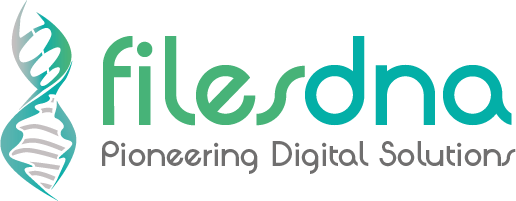Real Estate

How an e-signature and document management system can be particularly beneficial for real estate companies:
E-Signature and Document Management System: A Revolution for Real Estate Companies
The real estate industry is characterized by a continuous flow of documents and complex processes. Ensuring seamless transactions, compliance, and efficiency is paramount. An e-signature and document management system (EDMS) can transform how real estate companies handle their documentation. Here’s a deep dive into its multifaceted benefits:
1. Purchase and Sale Agreements
Real estate transactions often begin with purchase and sale agreements. With an EDMS, both parties can quickly sign these documents electronically, eliminating the need for physical meetings and paperwork. This digital approach speeds up transactions and ensures that all signed agreements are securely stored and easily retrievable.
2. Rental Agreements
For property managers and landlords, rental agreements are a daily task. An EDMS simplifies the signing process for tenants and ensures that all agreements are systematically organized, providing quick access when needed.
3. Mortgages and Refinancing
Assisting clients with mortgages and refinancing is a significant part of real estate transactions. An EDMS accelerates the approval process by digitizing the collection and storage of financial documents, thereby enhancing client satisfaction and reducing the processing time.
4. Property Inspections
Property inspections are vital to maintaining the condition and value of properties. An EDMS offers streamlined scheduling, recording, and reporting of inspections, enabling real estate professionals to identify and address issues promptly and transparently.
5. Collaborative Work
Real estate transactions often involve collaboration between different parties, including buyers, sellers, agents, and legal professionals. An EDMS fosters collaboration by allowing all involved to access, review, and sign documents from anywhere, leading to faster decisions and closures.
6. Integration with Existing Systems
An EDMS can be seamlessly integrated with CRM, ERP, or property management systems, creating a unified and efficient workflow that minimizes redundancies and enhances user experience.
7. Compliance and Regulation Management
Compliance with local, state, and federal regulations is non-negotiable in the real estate industry. An EDMS offers tools to automate compliance processes, tracking necessary permits, certifications, and adherence to fair housing laws, zoning regulations, and environmental constraints.
8. Environmentally Friendly
Going paperless with an EDMS is not only efficient but also environmentally friendly. It significantly reduces paper usage, contributing to sustainable business practices that align with modern social responsibilities.
9. Enhanced Customer Experience
In a competitive market, client satisfaction is key. An EDMS offers convenience and transparency, allowing clients to sign and access documents remotely, thereby enhancing their experience and fostering loyalty.
10. Scalability and Flexibility
As real estate companies grow, so do their document management needs. An EDMS offers scalability, adapting to the changing requirements without the need to overhaul existing systems.
Conclusion: A Modern Solution for Modern Challenges
An e-signature and document management system is not just a technological advancement; it’s a strategic investment for real estate companies. From speeding up transactions to ensuring compliance and enhancing client relationships, an EDMS adds value at every step of the real estate process.
In an era where agility, efficiency, and innovation are key, embracing an e-signature and document management system could be the game-changer that sets a real estate company apart from its competitors, providing a streamlined pathway to success in the dynamic world of property transactions.
Frequently Asked Questions (FAQs)
Q1: What is an e-signature and document management system (EDMS)?
A1: An EDMS is a digital platform that allows users to sign documents electronically and manage them in a centralized location. It helps in reducing paperwork, speeding up processes, and ensuring compliance with legal requirements.
Q2: How does an EDMS benefit real estate companies?
A2: An EDMS improves efficiency by streamlining document handling, from signing to storage. It enables remote engagement, enhances collaboration, ensures compliance with regulations, and improves customer satisfaction, among other benefits.
Q3: Is using an e-signature legally binding?
A3: Yes, in most jurisdictions, e-signatures are legally recognized and have the same legal status as handwritten signatures. However, it’s always best to consult with legal professionals in your area to understand specific laws and regulations.
Q4: How does an EDMS ensure the security of documents?
A4: EDMS platforms use encryption and secure access controls to protect documents from unauthorized access. Security features may include two-factor authentication, secure audit trails, and compliance with industry-standard security protocols.
Q5: Can an EDMS be integrated with other systems used in real estate?
A5: Yes, many EDMS platforms can be integrated with other systems like CRM, ERP, or property management software, creating a cohesive and efficient workflow.
Q6: How does an EDMS contribute to environmental sustainability?
A6: By reducing the need for physical paperwork and manual processes, an EDMS promotes a paperless environment, thereby reducing the ecological footprint and supporting sustainable business practices.
Q7: Can an EDMS be customized to fit a specific real estate company’s needs?
A7: Most EDMS platforms offer customization and scalability to suit the specific needs and growth of a real estate company, ensuring a tailored fit for different business models.
Q8: How can I choose the right EDMS for my real estate company?
A8: When selecting an EDMS, consider factors like usability, integration capabilities, security features, compliance tools, customer support, and scalability. It may be beneficial to request a demo or consult with an industry expert to find the best fit for your company.
Q9: What is the learning curve for implementing an EDMS?
A9: Most EDMS platforms are designed with user-friendliness in mind. Comprehensive training and support are typically provided to ensure a smooth transition for all users.
Conclusion
The implementation of an e-signature and document management system can redefine how real estate companies operate. These FAQs provide a brief insight into what an EDMS can offer. For more specific details and a customized solution, contacting a service provider or technology consultant is recommended.




